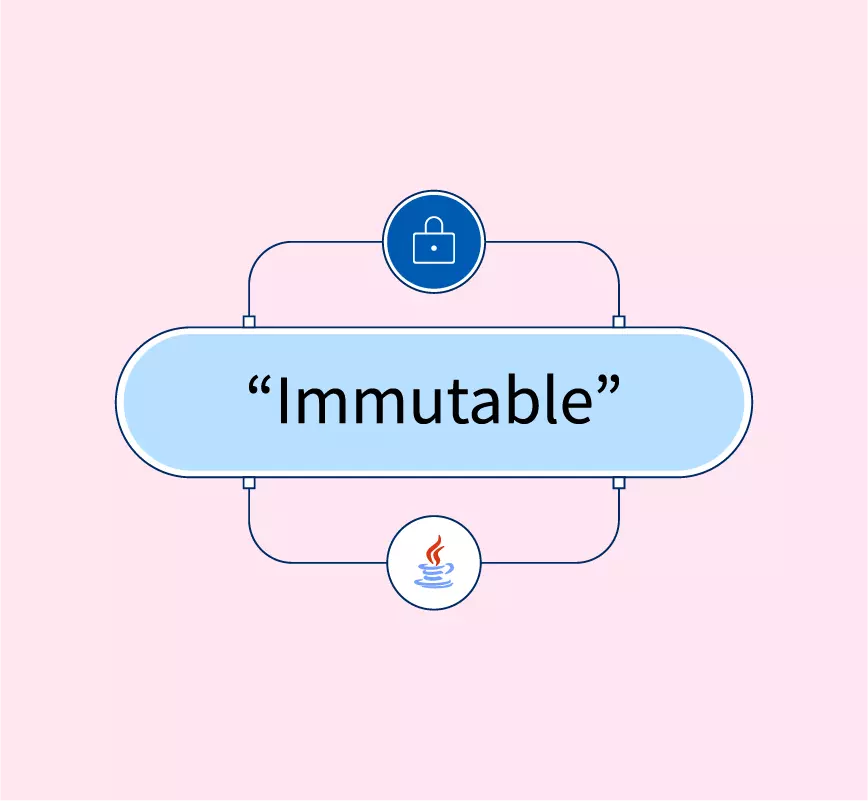Why Are Strings Immutable in Java? Understanding the Core Principles
Why Are Strings Immutable in Java? Understanding the Core Principles
Blog Article
Unalterable Strings: A Secret Component in Ensuring Information Consistency and Reliability
In the realm of information administration, the significance of unalterable strings can not be overemphasized. These imperishable sequences of characters play a crucial duty in maintaining the integrity and accuracy of info within systems. By preserving a state of immutability, information consistency is guaranteed, cultivating a foundation of reliability whereupon vital procedures rely. The concept of immutable strings transcends plain formality; it is a linchpin in the complex internet of data administration. As we explore the advantages, implementation approaches, and useful applications of immutable strings, a more clear photo arises of their indispensable nature in guarding the digital landscape.
The Concept of Unalterable Strings
Immutable strings, a fundamental principle in programs, describe strings that can not be modified when they are developed. In significance, when a string value is appointed, any kind of procedure that appears to customize the string actually creates a new string. This immutability guarantees data uniformity and dependability in applications, as it prevents unanticipated modifications to the original information.
Benefits in Information Consistency

Data uniformity is critical in different aspects of software application growth, including data source administration, multi-threaded environments, and dispersed systems (Why are strings immutable in Java?). Unalterable strings contribute considerably to attaining this consistency by protecting against information corruption due to simultaneous access. In circumstances where several processes or strings interact with the exact same data simultaneously, unalterable strings function as a protect against race conditions and synchronization concerns
Furthermore, the immutability of strings streamlines debugging and testing processes. With immutable strings, designers can rely on that when a string is set, it will stay the same, making it much easier to map the source of errors and ensuring that examination cases create regular outcomes. This dependability in data managing inevitably causes a lot more steady and durable applications.

Carrying Out Unalterable Strings
Making sure the immutability of strings calls for a thoughtful strategy to their application in software application growth. As soon as a string things is produced, one key approach is to create string courses in a way that prevents adjustments. By making strings immutable, developers can boost information uniformity and reliability in their applications.
To implement immutable strings properly, developers should prefer producing new string items instead of modifying existing ones. This practice ensures that once a string is assigned a worth, it can not be transformed. Furthermore, any kind of operation that appears to modify the string ought to develop a new string with the preferred changes as opposed to modifying the original.
Furthermore, utilizing unalterable strings can simplify concurrency management in multi-threaded environments. Because immutable strings can not be transformed after production, they can be securely shared amongst multiple strings without the threat of information corruption.
Duty in Integrity Assurance
In software advancement, the application of immutable strings plays an essential function in guaranteeing the integrity of data operations. Unalterable strings, when created, can not look at this site be customized, making certain that the information they stand for continues to be constant throughout the application's execution. This immutability residential property gives a degree of assurance that the data being refined will not be unintentionally altered, leading to unanticipated outcomes or errors in the system.
By integrating immutable strings into software program design, developers can enhance the reliability of their applications by reducing the risks connected with mutable data - Why are strings immutable in Java?. Immutable strings assist in avoiding data corruption or unintended alterations, which can be particularly important when managing sensitive information or when information honesty is extremely important
In addition, making use of unalterable strings streamlines concurrent processing, as numerous threads can safely access and share string data without the threat of one string changing the web content while one more is reading it. This aspect contributes considerably to the total integrity of the software system, guaranteeing consistent and predictable habits in information taking care of operations.
Applications and System Integration
The smooth assimilation of immutable strings right into different applications and systems is essential for guaranteeing durable data consistency and integrity across varied technical atmospheres - Why are strings immutable in Java?. Unalterable strings play an essential role in boosting the integrity of data exchanges and interactions within complicated software ecosystems. By incorporating immutable strings right into applications, designers can reduce the threats related to data meddling, unauthorized adjustments, and inadvertent changes, thus strengthening the total security position of the system
Immutable strings can enhance interoperability between inconsonant systems by supplying a standard format for data depiction, enabling a lot more reliable information handling and exchange protocols across interconnected systems. By adopting unalterable strings in applications and system combination processes, companies can fortify their Look At This data framework and promote the dependability and consistency of their details properties.
Final Thought
In final thought, immutable strings play a crucial duty in maintaining data uniformity and integrity in various applications and system assimilations. By making certain that strings can not be changed when produced, the integrity of information is protected, decreasing the threat of errors and variances. Applying immutable strings can dramatically improve the dependability of systems, ultimately leading to more reputable and exact data processing.

Report this page